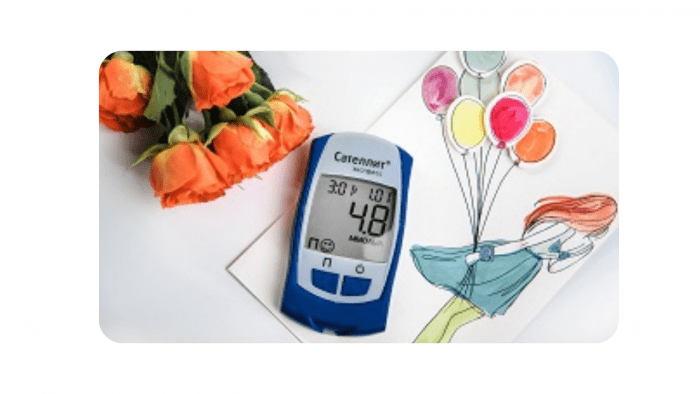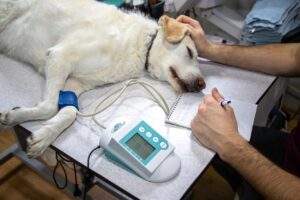Diabetes and Heart Disease: What Is The Connection?
Research has found a strong connection between diabetes and heart disease. Both conditions share several risk factors, including obesity, high cholesterol, high blood pressure, etc. Several biological mechanisms have also been found to be associated with diabetes that elevates the risk of developing heart disease.
Stroke and heart disease are the number one causes of death in people with diabetes. Higher blood sugar levels in people with diabetes can cause damage to the blood vessels, increase inflammation, and interfere with normal blood circulation in the body.
So, it is significant for people with diabetes to keep their blood sugar levels under control to avoid heart disease. This article will look at the connection between diabetes and heart disease in detail, along with some of the best ways men with diabetes can consider minimizing the risk of developing heart disease.

Why Does Diabetes Elevate Your Risk For Heart Disease?
When you have high blood sugar for a prolonged period (even slightly above the normal range), it can damage your blood vessels leading to serious complications.
This is primarily because your body can’t use all of this sugar appropriately, so a considerable amount of it adheres to your red blood cells (RBCs) and accumulates in your blood. This build-up could obstruct and damage the blood vessels circulating blood to and from your heart, depriving it of oxygen and vital nutrients.
So try to keep your HbA1c level close to the normal range and help protect your blood vessels and, ultimately, heart. Even slightly elevated blood sugar levels over time can make you susceptible to heart disease.
What’s The Best Diet For Diabetes and Heart Disease?
The best diet for diabetes and heart disease involves choosing foods that lower blood pressure, overall cholesterol, bad cholesterol (LDL), fasting blood sugar, and triglycerides.
In general, the following foods are considered the best for managing diabetes and heart disease:
High in:
- Vitamins
- Minerals
- Antioxidants
- Fiber
Low in:
- Cholesterol
- Sodium
- Saturated fats (and free from trans fats)
When preparing a grocery list, include more fresh and whole foods. Also, try to limit refined and processed foods which may be high in sugar or salt.
Some common examples of good food choices for diabetes and heart disease include:
- Fresh vegetables
- Fresh fruits
- Brown rice
- Whole grain bread or pasta
- Low-fat dairy
- Legumes, including chickpeas or lentils
- Lean protein, including skinless chicken, lentils, eggs, and fish
- Healthy fats, including those in avocados, olive oil, nuts, and seeds
For further advice, kindly consult your doctor or a nutritionist to manage weight and eat healthily for diabetes and heart disease.
How Is Heart Disease Diagnosed?
Heart disease couldn’t be diagnosed with a single test. Your healthcare provider will conduct several tests to understand your overall health. These diagnostic tests include:
- Blood tests: Blood tests are done to measure LDL, HDL, total cholesterol, and triglycerides.
- Electrocardiograms(ECG): It checks the electrical activity of the heartbeat to seek out any abnormalities. With an ECG, the doctor can understand if your heart is working too hard or if you have recently suffered a heart attack.
- Echocardiograms: It uses sound waves to create images of the heart to monitor how well blood circulated through it.
- Transesophageal echocardiography (TEE): As with echocardiograms, TEE also uses sound waves to create images of the heart. This test will help your healthcare provider check your heart valves and check for any blood clots.
- Stress tests: These tests evaluate your heart’s response to exercise.
- CAT or CT scans: It uses a computer to produce cross-sectional images of your heart.
How To Reduce The Risk Of Heart Disease When You’ve Diabetes?
The good news is that men with diabetes can reduce the risk of developing heart disease. Consider the following tips:
- Eat a healthy diet: Have a healthy diet, including the foods that we have discussed in the best diet for diabetes and heart disease. Avoiding trans fats completely and reducing the intake of saturated fats is a good way to start with.
- Don’t smoke: Smoking affects your body’s blood circulation, especially to and from the heart. If you can’t quit smoking by yourself, seek the assistance of a medical professional.
- Be physically active: Regular exercise improves blood flow to the body, and so make sure you exercise for about 30 – 45 minutes each day (simple walking is also enough).
- Manage body weight: If you are overweight or obese, try losing some pounds with a healthy diet and regular exercising. Losing even some pounds could make a significant difference. Maintaining a healthy body weight will decrease the strain in your heart and prevent heart disease.
- Take your medications as prescribed: Some medications help protect your heart by lowering high blood pressure or blood fats, and you can take these pills even if you don’t have any blood pressure problems or high blood fats (but only if your doctor recommends).
- Get your HbA1C, blood cholesterol, and blood pressure levels checked at least annually: Be sure you get adequate advice and support from your healthcare professionals to maintain them within your target range.
Conclusion
By reading this blog, you may have realized that there is a strong connection between diabetes and heart disease as they share a number of common risk factors.
People with diabetes can alleviate their risk of developing heart disease by having a healthy diet, increasing physical activity, losing weight (if they are overweight or obese), taking the medications as prescribed, etc. Kindly consult your doctor to obtain more advice regarding the same.







